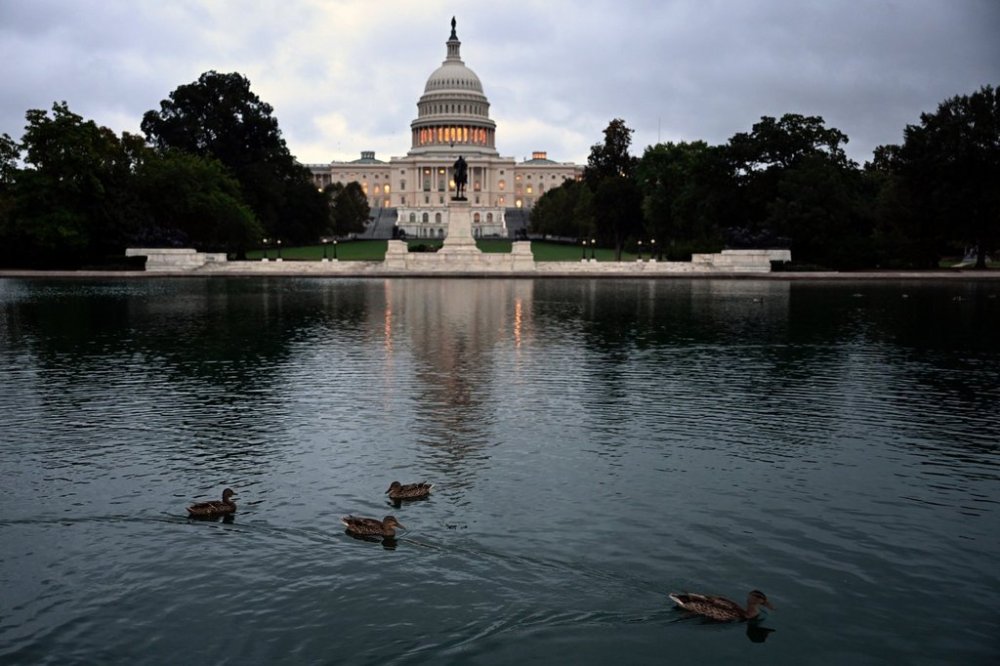AP reader question: How might the federal shutdown affect the economy?
Advertisement
Read this article for free:
or
Already have an account? Log in here »
To continue reading, please subscribe:
Monthly Digital Subscription
$1 per week for 24 weeks*
- Enjoy unlimited reading on winnipegfreepress.com
- Read the E-Edition, our digital replica newspaper
- Access News Break, our award-winning app
- Play interactive puzzles
*Billed as $4.00 plus GST every four weeks. After 24 weeks, price increases to the regular rate of $19.00 plus GST every four weeks. Offer available to new and qualified returning subscribers only. Cancel any time.
Monthly Digital Subscription
$4.75/week*
- Enjoy unlimited reading on winnipegfreepress.com
- Read the E-Edition, our digital replica newspaper
- Access News Break, our award-winning app
- Play interactive puzzles
*Billed as $19 plus GST every four weeks. Cancel any time.
To continue reading, please subscribe:
Add Free Press access to your Brandon Sun subscription for only an additional
$1 for the first 4 weeks*
*Your next subscription payment will increase by $1.00 and you will be charged $16.99 plus GST for four weeks. After four weeks, your payment will increase to $23.99 plus GST every four weeks.
Read unlimited articles for free today:
or
Already have an account? Log in here »
Here’s a question about the shutdown submitted by an Associated Press reader, Ryan S.:
How might the shutdown affect the U.S. economy?
Shutdowns of the federal government usually don’t leave much economic damage. But the one that started Wednesday looks riskier, not least because President Donald Trump is threatening to use the standoff to permanently eliminate thousands of government jobs, and the state of the economy is already precarious.

For now, financial markets are shrugging off the impasse as just the latest failure of Republicans and Democrats to agree on a budget and keep the government running.
Let’s take a look at a range of possible economic effects:
1. A couple of days: Financial markets may experience some fluctuation, but that likely won’t be significant if funding is restored before too long. Workers will get paid back, and ideally there’s not much of an economic lag.
2. Longer term: Federal workers get furloughed and the federal government delays some spending during a shutdown. But when the funding comes back, workers go back to their jobs and collect back pay, and the government belatedly spends the money it had withheld. It’s pretty much a wash.
3. Very long term: If there are significant disruptions to sectors like air travel due to shutdown-related circumstances — like the security screeners and air traffic controllers who called out sick during the 2018-2019 shutdown — that can mean more trouble for industries. But even in that 35-day shutdown, the longest in U.S. history, the Congressional Budget Office estimates that just 0.02% was shaved off 2019 U.S. gross domestic product, the nation’s output of goods and services.
Also: Trump has threatened to permanently eliminate thousands of government jobs during this shutdown, so if that happens, and new tranches of people are immediately out of work, that can upset an already precarious economy. We just don’t know yet if those layoffs will happen.
___
Do you have a question for AP about the government shutdown? You can submit it here.

